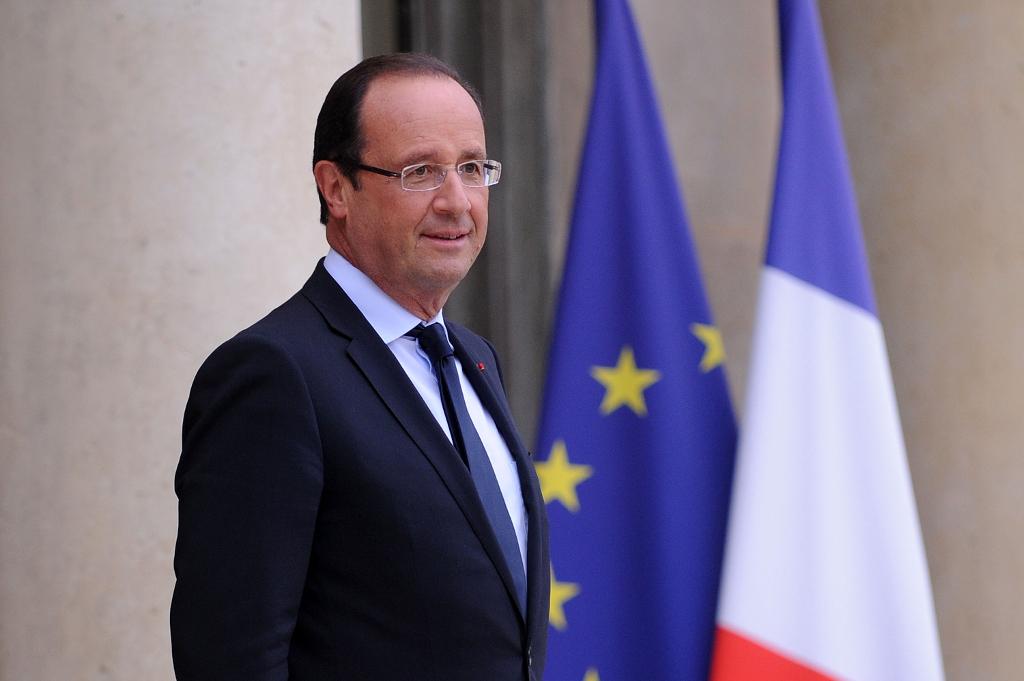France should welcome euro zone subordination
French President Francois Hollande at Elysee Palace
French President Francois Hollande is facing a worsening economy and falling approval ratings as his country’s role within the euro zone changes.
Yet the perceived slippage in France’s power since the days of the Merkozy axis between his predecessor Nicolas Sarkozy and German Chancellor Angela Merkel is not necessarily negative, according to Douglas Yates, assistant professor of Political Science at the American University of Paris.
“What Hollande has done is very interesting. He’s a committee man and by ceding the leadership role to Angela Merkel, he’s been able to get some major concessions, for example, getting Germany to sign off on trillions of euros worth of credit and backing,” Yates told CNBC.
“His strength is to enmesh Angela Merkel in the institutional morass of the euro zone.”
Hollande has played a canny game in the early months of his arrival in euro zone diplomacy, at some points appearing to align himself with his counterparts Mario Monti in Italy or Mariano Rajoy in Spain. He has recently backed the idea of a “two-speed Europe.”
Election promises of spending to create jobs have been shelved in favor of austerity and labor competitiveness reforms which are more welcome to the country’s euro zone partners.
“The campaign promise was Keynesian spending. Now that he’s got to meet the requirements of his European partners, he’s backing off on all of those spending programs,” Yates said.
Hollande expressed some frustration with the pace of reform in the euro zone in a round of interviews with major European newspapers, but Germany has still remained an ally despite concerns in Berlin about the recent European Central Bank’s (ECB) bond-buying plans.
The idea of Eurobonds — joint debt issued by the euro zone — is the main issue France and Germany are publicly divided on.
Meanwhile, Hollande, like most socialist French leaders before him, has found himself in an awkward relationship with the large corporations which dominate France’s business environment. There are increasing concerns that France, with its high public debt and low growth rates, is closer to the peripheral economies of the euro zone than its core.
On Thursday, ratings agency Standard & Poor's cut the credit ratings of several French banks including its biggest, BNP Paribas, over worries about their exposure to the euro zone crisis.
“The only strategy for France is to become immersed like a tea bag in the hot water cup of Europe,” Yates said.
More from our partner CNBC:
CNBC: Do wealthy have moral obligation to pay higher taxes?
CNBC: Iran's coal shipping trade booms despite Western heat
CNBC: Europe's poor ask for food aid as crisis bites
CNBC: Berlusconi sentenced to 4 years for tax fraud
CNBC: Phillippine central bank cuts rates to cushion economy
We want to hear your feedback so we can keep improving our website, theworld.org. Please fill out this quick survey and let us know your thoughts (your answers will be anonymous). Thanks for your time!
